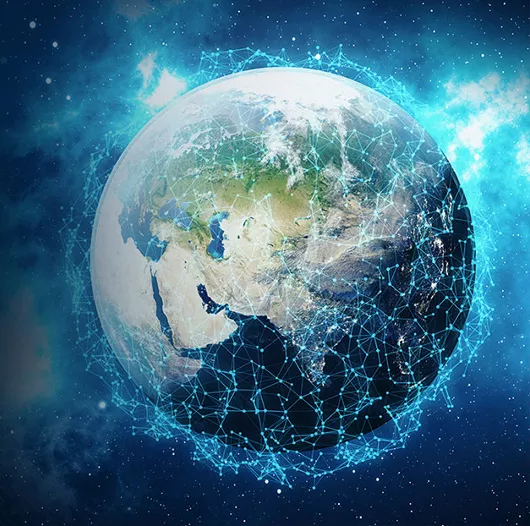Data Can Still Save the World


As the dad of a ten-year-old girl, it has been a challenging few months. In the face of bad news and adversity, like any parent, I have had to work hard to assure her that everything will be alright; that I will do what I can to make the world a better place for her.
As the leader of a data management and analytics business, however, I remain a resolute optimist.
During my career, I’ve seen a steady progression in the science that connects data to outcomes. From the early days of data warehouses through the current generation of digital business architectures, our ability to flexibly apply technology to first-of-a-kind problems when it matters most has been completely revolutionized.
I see growing evidence, even during our current adversity, that we humans are beginning to excel at creating new value from the exabytes of data emanating from billions of connected devices. Machine learning and artificial intelligence are helping us tame the data beast. They are enabling us to understand its patterns and habits, so that we can put it to work in powerful new ways.
Perhaps best of all, this powerful ability to solve problems in the moment isn’t limited to a select few. This power is being put in the hands of experts and innovators across many fields and backgrounds who are collaborating to solve the most challenging problems in the world today.
I’m especially optimistic about the future because the speed at which we are generating these new insights and new value is accelerating.
Consider the dramatic contrast in the speed of humanity’s response to the pandemics of the twenty-first century, such as H1N1 ‘swine flu’ or COVID-19, relative to the polio pandemic of the first half of the twentieth century.
It took forty-seven years from the time the deadly polio virus was discovered until the first vaccine became available in 1955. It took just 16 months from the discovery of the first US case of the H1N1 swine flu virus in April 2009 until new vaccines enabled the WHO to declare the pandemic over in August 2010.
Ten years later, the detection-to-vaccine window for COVID-19 may be even shorter. It is only five months since the first US case of COVID-19 was detected and already three vaccines are entering advanced stages of testing this summer.
This type of acceleration in medical research is being enabled by technologies such as the Precision Medicine Platform that Hitachi Vantara developed for the American Heart Association. The ‘PMP’ has reduced the time it takes to run trillions of tests on terabytes of individual-level data from hundreds of thousands of individuals from weeks to just an hour. Now, we’re applying the same technology to the fight against COVID-19. You can learn more in the HVTV video interview below.
Leaps forward such as these are occurring in many other industries.
Data is helping to address water scarcity, an issue for billions of people on this planet. According to the World Bank, four billion people live with insufficient water at least one month of the year. The Bank estimates that up to 30% of a utility’s water is lost in the network.
In the UK, Vodafone and SouthEast Water have implemented a trial using specialist water meters, sensors and acoustic loggers to collect data on the health of the pipe network so that they can identify needed repairs with pinpoint accuracy. Success here could unlock enormous economic, environmental, and social value around the world.
Both my wife, a wonderful Brazilian woman, and I are also excited about the potential for data to help us preserve natural resources and endangered species, such as those in the world’s rainforests. Hitachi Vantara is collaborating with Rainforest Connection to analyze acoustic data from solar powered, recycled cell phones to monitor the rainforest for signs of illegal deforestation. In future, our algorithms may also enable researchers to listen to the sounds of the rainforest to track and preserve species.
Each of these fledgling success stories has solutions at its core that could be wildly valuable to any company in the world. Each has figured out how to bring the right data to the right place at the right time, so that the right experts can develop the right solutions to the world’s toughest problems.
This is our vision at Hitachi Vantara. We see incredible potential for data to ‘Power Good’ through the data infrastructure advantage we bring our customers; through the insights our Lumada data management and analytics technologies deliver, and via our world-class services and consulting team, which helps organizations architect the culture and processes they need to turn data into value.
Our portfolio is a source of pride, but what makes me most confident that Hitachi Vantara can solve the data challenges others cannot is the deep industrial expertise we possess across the Hitachi Group in manufacturing, healthcare, energy, transportation and more. Hitachi operates more than 400 factories. We run hospitals. We make medical imaging devices. We run power grids and rail services. Now, with Hitachi Vantara, we’re bringing all of that digital expertise and IP to bear in the creation of a new type of company with a new kind of mission.
We’re building a digital business for a digital society, and I’m more confident than ever that we can liberate the value from data so that my daughter grows up optimistic about the future, and empowered to solve the problems of the world.
Brad Surak is Chief Product and Strategy Officer at Hitachi Vantara.